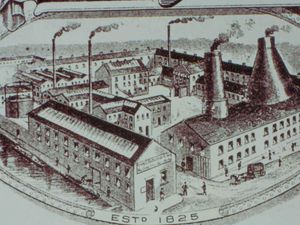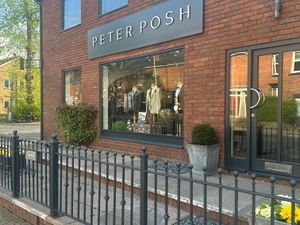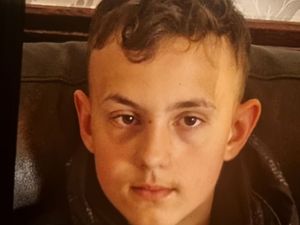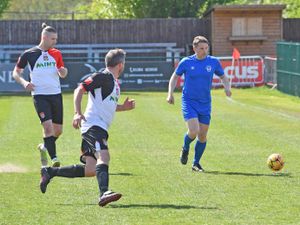Prince William unveils Frank Foley statue in Stourbridge– with PICTURES and VIDEO
Thousands turned out to see the Duke of Cambridge honour Black Country war hero Frank Foley.
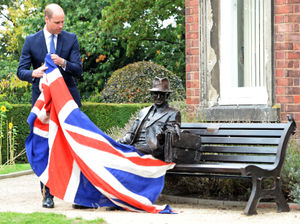
His brave actions saved thousands of Jews from the Nazi concentration camps during the Second World War.
Now 60 years after his death it is clear Major Frank Foley’s heroic deeds have not been forgotten as Prince William himself visited the Black Country to unveil a statue of the war hero.
Mary Stevens Park in Norton, Stourbridge, – just down the road from where Major Foley CMG used to live in Eveson Road – was packed full of people for the grand occasion.
It was probably one of the biggest days at the park since Queen Elizabeth II and Prince Philip visited the same spot in 1957.
'Stourbridge loves you'
The Duke of Cambridge yesterday made his way down the park’s boulevard, named Queen’s Drive after his grandmother’s visit 61 years ago.
When he met crowds Prince William was greeted with chants of: “Welcome to Stourbridge” and “Stourbridge loves you”
He was also heard to comment to one spectator: “It is a lovely park you have here.”
See the pictures from the Prince's visit:
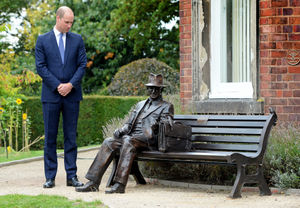
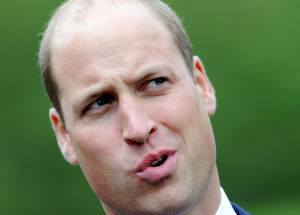
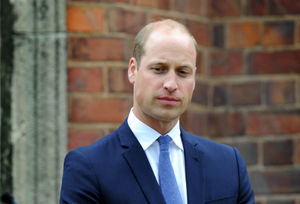
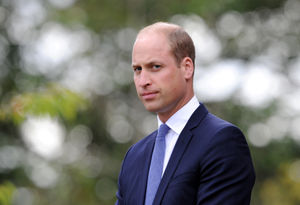
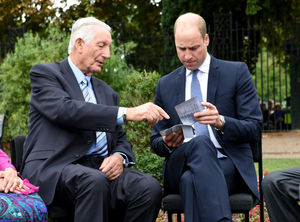
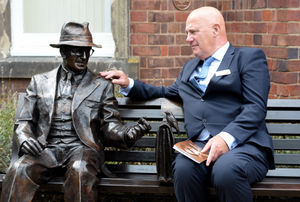
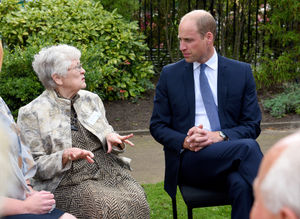
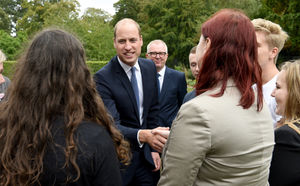
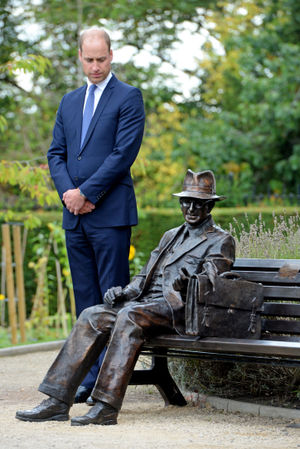
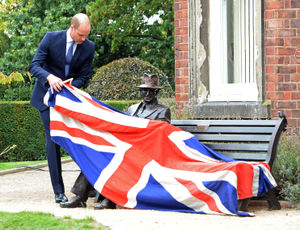
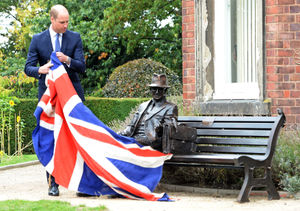
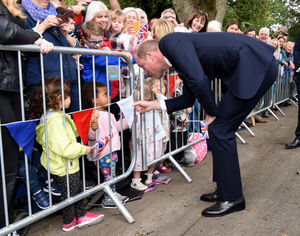
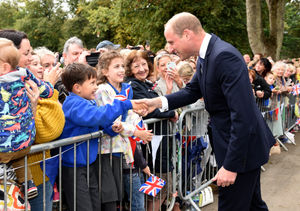
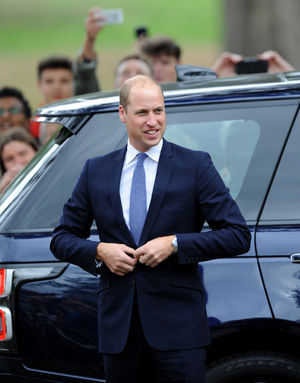
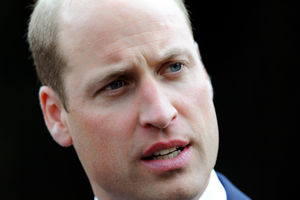
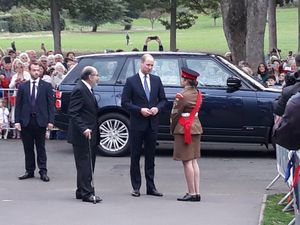
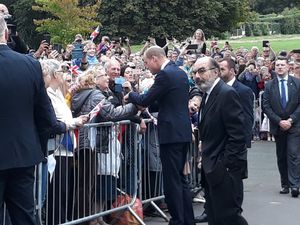
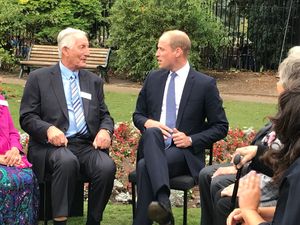
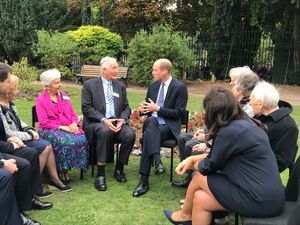
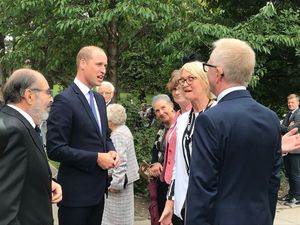
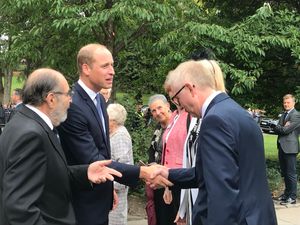
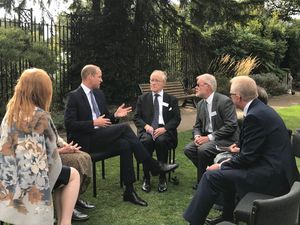
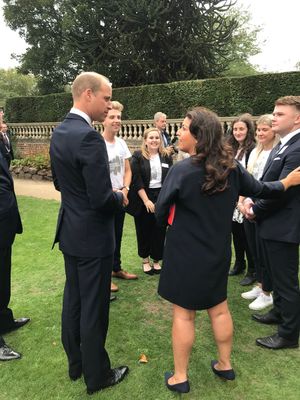
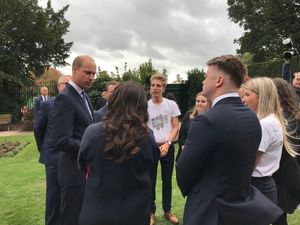
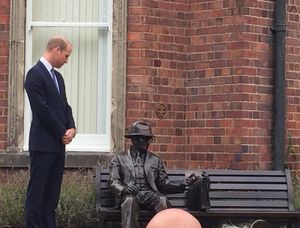
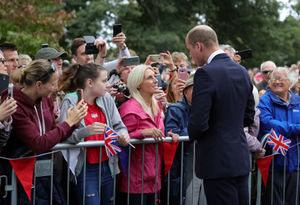
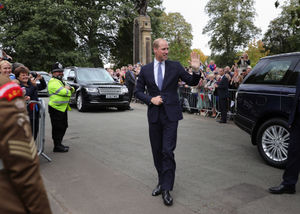
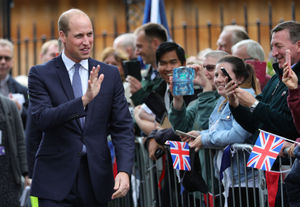
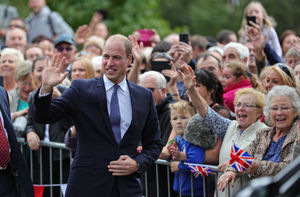
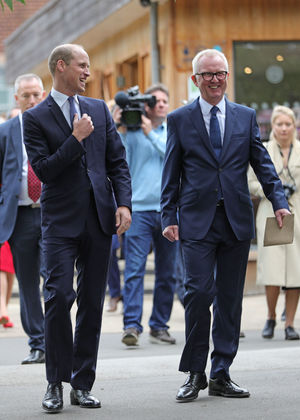
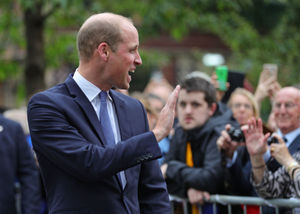
The Duke met members of Maj Foley’s family including descendants of some of the people he saved, as well as Dudley North MP Ian Austin and representatives of the Holocaust Educational Trust – who have worked together to spear head the campaign to honour Maj Foley.
The statue was sculpted by Birmingham-based artist Andy De Comyn.
The design is a life-size replica of Maj Foley, featuring him sitting on a park bench dressed in a suit, replicating how he would have looked in the 1930s as a spy.
He is feeding a bird, symbolising freedom and the people he helped, with a briefcase hinting at his MI6 work.
Scroll down to see our live updates from the royal visit
Mr De Comyn said: “It’s been eight months of work with the sculpting and foundry work. I am really pleased how it’s come out – it’s my first full size bronze sculpture.
"It is a real bonus to have His Royal Highness here and it is really nice for Frank Foley to get this recognition.
“It’s a lovely spot for the statue, he’s got a lovely view and it has worked out really well, the statue has come out exactly as I imagined.”
The British Schindler
Born in 1884, Maj Foley worked for the Foreign Office and became Head of the British Passport Control Office in Germany in the 1930s.
As he watched Adolf Hitler’s rise to power, he realised Jewish families were vulnerable.
Maj Foley used his position as a passport controller at the British Embassy to bend the rules to save Jews from the concentration camps.
WATCH: Frank Foley's niece remembers the great man
Maj Foley used skills picked up in the secret service to obtain false papers, passports and visas. He entered the camps and presented travel visas to the Nazi authorities.
Dubbed the ‘British Schindler’ he even hid escapees in his own home.
It is believed he saved more than 10,000 Jews from the gas chambers.
He retired to Stourbridge where he lived at Eveson Road, in Norton, until his death in 1958 at the age of 73.
But it was only years later that the scale of his life-saving campaign came to light after author Michael Smith, published his book, Foley: The Spy Who Saved 10,000 Jews in 1999.
In 2010, Major Foley was named a British Hero of the Holocaust by the British Government.
Karen Pollock MBE, chief executive of the Holocaust Educational Trust, said: “It is something for the local community to be proud of. It is a starting point to learn about a difficult period of history.”
An inspiration
In making his speech, Dudley North MP Ian Austin offered Prince William a ‘warm Black Country welcome’.
He said: “Many thousands of people were saved by Major Frank Foley who took immense risks to save Jewish people from concentration camps.
“He retired in complete anonymity and never boasting about what he did, just around the corner from the park, where he lived until his death.
“I want people to come to the park and sit next to Frank Foley – and understand how he refused to stand by when people were persecuted and remember a great local hero.
“I hope this statue will help people learn about history’s greatest crime, the Holocaust.
"Without Michael Smith’s book about Frank Foley none of us would know about what he did – his story has been an inspiration to us all.”
Thank you
Following the unveiling, Stephen Higgs – Maj Foley’s great-nephew – said: “Ian Austin MP, with the help of the Holocaust Educational Trust, has driven this project from the beginning for a number of years.
"It is a privilege to be with him here today to see the final unveiling of the statue to Frank Foley.
"Thank you also to Michael Smith, because without his book we would have never known about this story.
“I think we should also pay tribute Kay Foley, the wife of Frank.
“She dealt with the arrival of refugees to their apartment in Berlin – she was aware of the risks.”
Earlier in the day Prince William had teamed up with David Walliams at the University of Birmingham to present prizes to primary school children at the National SkillForce Prince William Graduation Ceremony.
The Duke also visited Acorns Hospice in Selly Oak – 30 years after his mother Princess Diana opened it.

